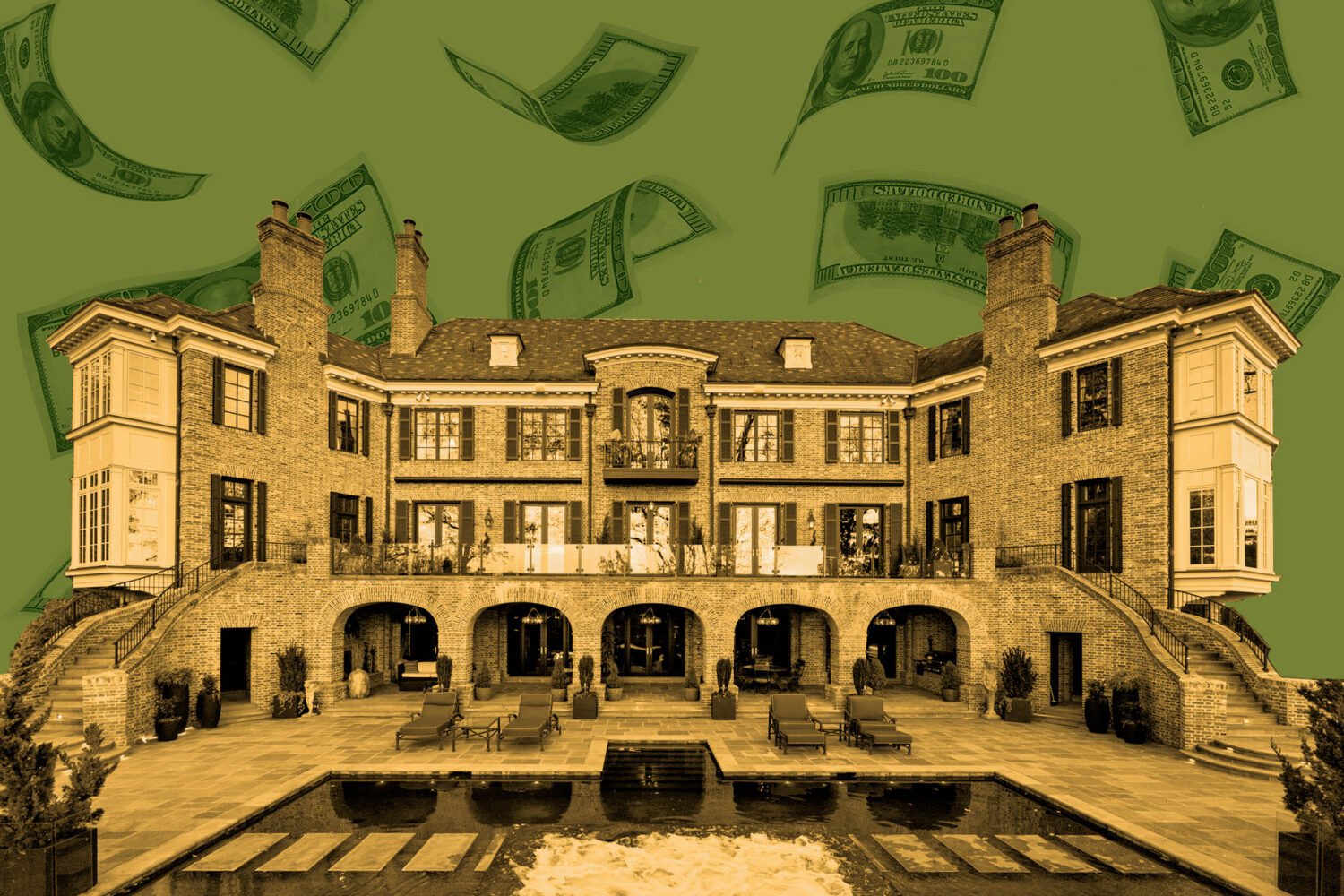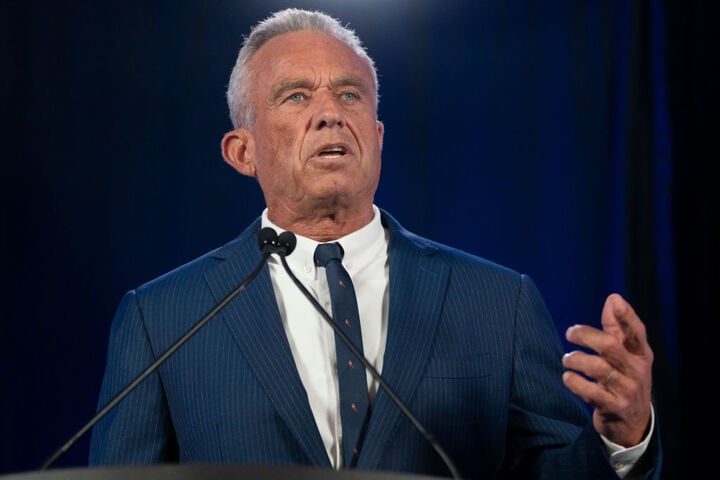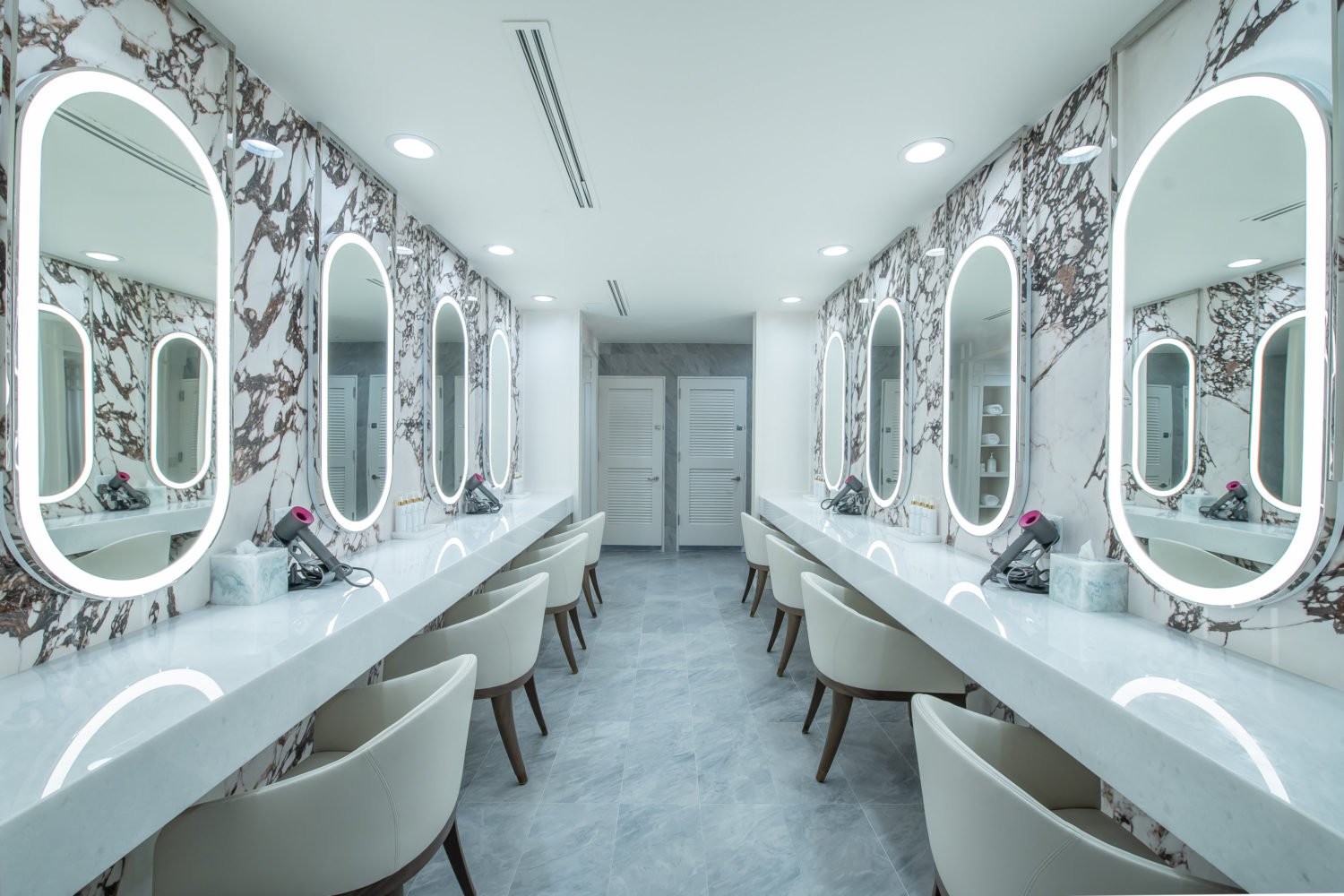If “biggest s**tshows of 2020” were a contest, the Trump campaign’s Rudy Giuliani press conference at the humble Four Seasons Total Landscaping in North Philly—not the luxe hotel in Center City—might take the top prize. Instantly memeable and a moment of levity at the tail end of a bilious presidential campaign cycle, the event is now being explained by the small company’s owners in MSNBC’s Four Seasons Total Documentary. It’ll premiere at 10 PM on November 7—the one-year anniversary of the fiasco—and is co-produced by New York magazine Washington correspondent Olivia Nuzzi, who wrote a feature on the subject. We chatted with her about sleeping through the press conference, her experiences covering the Trump campaign, and learning about the human beings who exist behind a meme.
How did you get involved with the project?
“I had spent quite a lot of time reporting on the press conference and what happened there that morning. Christopher [Stoudt], the director, got in touch with me on Instagram—I think we have like, mutual friends or something. The first time I was ever actually physically inside of Four Seasons landscaping was when we taped our interview for the documentary. Previously, I’d never been inside the actual place.
I woke up on the day of November 7, I had missed the [11:30 AM] press conference, and I had like a million notifications. I remember waking up and trying to make sense of all the different notifications, and tweets, and so many messages from people asking me to figure out what happened at Four Seasons. I was so overwhelmed by how many people saw this unfurl and immediately thought like, ‘Oh, Olivia is the person to solve this,’ despite the fact that I have never in my life solved any of the mysteries that I have been tasked with solving. I was weirdly very moved by that, and I thought it was so nice, and weird, and I guess a little sad.
I tweeted that I was going to try and get to the bottom of it. I didn’t think that it was going to be an extraordinarily challenging reporting endeavor. I just thought someone was going to say “oh, it was this person who fucked something up, and Trump got confused, and that’s the story.” Instead, it took like six weeks. People would tweet at me and be like, ‘Hey, where’s the story?’
I had told people I would get to the bottom of this mystery, and that’s the only reason I succeeded in filing a story at all, because I had publicly vowed to do so. Otherwise, I think I would have absolutely abandoned the project after a week or so; it was absurdly annoying to me and difficult to report out. All of my patience had been used up in the last five or six years, however long I’d been reporting on Trump at that point, and I just didn’t have the patience for that level of fuckery anymore. I didn’t end up solving the mystery, which was not a surprise to me, but I did feel a little bad.”
Well, and I was surprised by that watching the documentary, because in my mind I remembered the whole debacle being explained as “the Trump campaign called the wrong Four Seasons and went with it,” but the doc suggests it might have been intentional since the campaign was totally broke and the company was located in an advantageous position near the highway.
“Yeah, that was news to me. It didn’t strike me as totally shocking; it’s not as if this is a group of people known for making normal decisions. It sort of defies our understanding of what a generic, risk-averse campaign would do, that they would seek out a location as genuinely hilarious as that location in terms of the surroundings. [Note, for those who have done their best to erase 2020 from their brainfolds, the surrounding buildings included a sex shop and crematorium].
I think this is always true with with Trump and with the campaign and the administration: I found I was searching for answers that made sense to me, only to find you kind of have to accept the actual answers just don’t make sense. And I think that’s the case here, but at the same time, it is pretty standard for a campaign to find a friendly local business to to do an event. I think because I slept through the event, and slept through the joke, it was never as funny to me as I’m sure it would have been had I been alert and awake as it unfolded. I never found it funny that they were at a landscaping place. it was all the other things that made it amazing.”
So that’s interesting that despite how deep you went on this story, you still learned something through the doc. Were there other things that came up during this project that surprised you?
“I was happy to hear at length from [Four Seasons Total Landscaping owners] the Siravos, because at the time that I was driving back and forth from DC to northeast Philly to try and talk to them, they were extraordinarily spooked about the press. They were not super accessible, so my interactions with them were extremely limited. I talked a bit to the son, Mike, but not at length, and [talking to the family for my piece] is really what I had wanted. I never really thought I was going to solve the mystery, and I really wanted to understand [the family’s] perspective on things.”
What made you want to join the project?
“I definitely was a little sick, and remain a little sick, of all the Trump characters. It’s like this never-ending saga, where we never really got rid of any characters. Beginning in 2015, we just kept adding new characters to this totally unwieldy ensemble cast, and so I have a little bit of fatigue having spent too much time contemplating the existence of those associated with the former president.
I thought [this documentary] was an interesting and original way to tell the story that’s been told a million times. And in particular, I like that [Chris] didn’t approach it like it was a big joke. He was interested in the real people whose lives are affected. I think the value [of the doc] is in understanding and remembering that there are real human beings involved at the center of those memes. [The press conference] has remarkable staying power as a joke, and for whatever reason people are going to always remember this weird thing that happened at a parking lot of a landscaping company next to a porn bookstore and across the street from the crematorium.
By the way, the porn shop guy and the owner of the crematorium are really lovely, good-natured people who thought it was just as funny as anyone else.”
This interview has been edited for length and clarity.
















